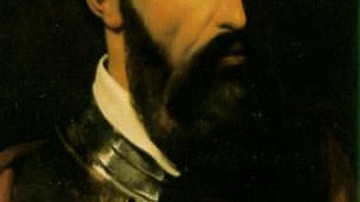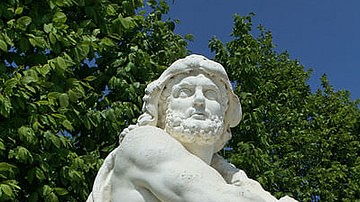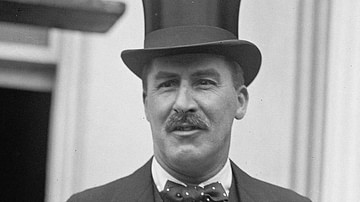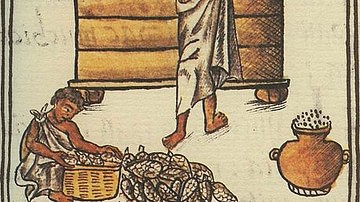Search Articles
Browse Content (p. 144)

Article
Ethnicity & Identity Within the Four-Room House
The process of determining ethnicity is a problematic venture, even more so when interpreted through the archaeological record. Despite this issue, evidence, such as the four-room house, has been preserved that can be interpreted to represent...

Article
Pizarro and Atahualpa: The Curse of the Lost Inca Gold
In November 1532 CE, Francisco Pizarro led a group of about 160 conquistadors into the Inca city of Cajamarca. The illiterate and illegitimate son of an Extremaduran nobleman and an impoverished woman, Pizarro had spent his entire life on...

Article
Hercules and Alcestis: Personal Excellence & Social Duty
For the ancient Greeks, the quality of arete (personal excellence) and the concept of eusebia (social duty) were most important. Aristotle discusses both of these at length in his Nichomachean Ethics and relates arete to eudaimonia - translated...

Article
The Shield of Heracles: The Complete Poem
The Shield of Heracles (also known as The Shield of Herakles and, in the original, Aspis Herakleous) is a poem of 480 hexameter lines written by an unknown Greek poet in the style of Hesiod (lived 8th century BCE). It deals with the Greek...

Article
The Life of Hercules in Myth & Legend
Hercules is the Roman name for the Greek hero Herakles, the most popular figure from ancient Greek mythology. Hercules was the son of Zeus, king of the gods, and the mortal woman Alcmene. Zeus, who was always chasing one woman or another...

Article
The Banquet Stele of Ashurnasirpal II
When he came to the throne in 884 BCE, Ashurnasirpal II had to attend to revolts which broke out across the empire. He ruthlessly put down all rebellions, destroyed the rebel cities and, as a warning to others, impaled, burned, and flayed...

Article
Winning Against the Odds: Sargon II & the Urartu Campaign
It is often when one is faced with the most difficult circumstances that one is given the greatest opportunity for clarity. History provides ample evidence of this experience in showing how, when faced with seemingly impossible situations...

Article
Wonderful Things: Howard Carter's Discovery of Tutankhamun's Tomb
The great discoverer of the treasures of King Tutankhamun, Howard Carter, was born on May 9, 1874 CE to Samuel John and Martha Joyce (Sands) Carter in Kensington, England. A sick, home-schooled child, Carter learned to draw and paint from...

Article
Aztec Food & Agriculture
The Aztec civilization, which flourished in central Mexico between c. 1345 and 1521 CE, was able to provide an astonishingly wide range of agricultural produce thanks to a combination of climatic advantages, diverse artificial irrigation...

Article
Ancient Mesopotamian Beliefs in the Afterlife
Unlike the rich corpus of ancient Egyptian funerary texts, no such “guidebooks” from Mesopotamia detail the afterlife and the soul's fate after death. Instead, ancient Mesopotamian views of the afterlife must be pieced together from a variety...